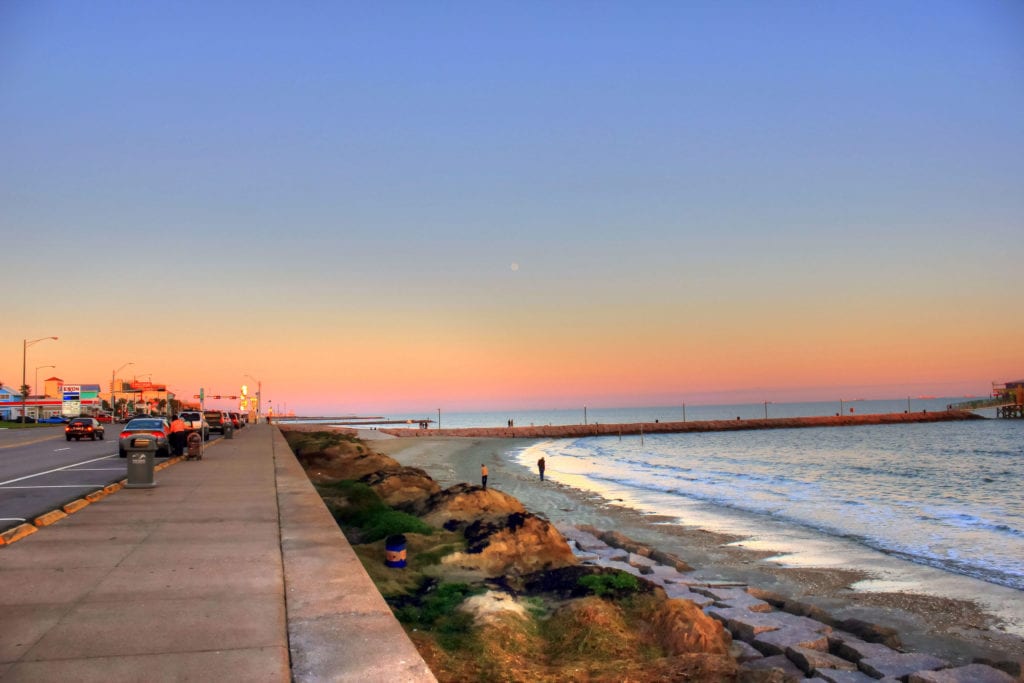 Photo Credit: Good Free Photos / CC0 Public Domain
Photo Credit: Good Free Photos / CC0 Public Domain
Caption: The Galveston shoreline.
Regarded as a controversial topic in Galveston County, gambling has been heavily debated by both politicians and residents for many years. However, a new gaming proposal could once again bring gambling back to the state, but lawmakers will first need to persuade voters to do so.
It’s possible voters could sway in favor when they learn the new gaming proposal could be beneficial for those who own property along the Texas Gulf Coast.
How the Gambling Bill Will Work
https://www.youtube.com/watch?v=0x_B1hYgi4k
Joe Deshotel, a democratic representative from Beaumont, wants to secure support for the Texas House Bill 494, which could bring gambling to South Texas in the not-so-distant future.
If passed, the bill will generate funds for the Texas Windstorm Insurance Association, which could help homeowners who need to pay for additional insurance protection, as the areas are vulnerable to hurricanes. It will also provide funding for coastal areas that experience catastrophic flooding. Still, the passing of the new law will ultimately permit both the building and operation of casinos across specific Texas counties.
According to Deshotel, the bill will provide extra insurance for residents if passed. What’s more, they will also have an opportunity to vote for or against casinos in Texas in the future.
Should Texas House Bill 494 approve, the Texas Lottery Commission could issue up to six casino licenses across Galveston, Jefferson and Nueces counties. Even further, the commission could approve both dog and horse racing tracks in Harris and Bexar counties.
While it is unusual to see casino gaming and climate change efforts intertwined, it could be enough to persuade voters to pass Deshotel’s legislation.
The passing of the bill could be life changing for the community. For instance, the Houston region alone sustained a $16 billion economic loss following Hurricane Harvey in 2017. However, the bill could help the state to effectively prepare for future natural disasters, as it would tackle the huge budget crisis, potentially motivating Republicans to support the bill and casinos in the great state of Texas.
The casino legislation will not come into effect until state voters approve the proposed constitutional amendment, which would grant the legislature the authority to legalize casino gambling.
 Photo Credit: PxHere / CC0 Public Domain
Photo Credit: PxHere / CC0 Public Domain
Caption: The casino nightlife.
The History of Galveston Gambling
Nowadays, most residents can only access games from a reputable online casino, which is surprising given that Galveston was alive with gambling way back in 1918. And while it might have been illegal at the time, many people would make their way to Galveston Island to play various games.
As a result, the area became known as the “Free State of Galveston” during the 1940s and 1950s. Brothers Salvatore “Sam” and Rosario “Rose” Maceo also opened The Balinese Room, which was both a gambling spot and supper club that became one of the most popular establishments within the Texas Gulf Coast. LIFE magazine also coined Galveston as “the last surviving sin city” back in 1947. Despite its history, many Texans do, however, believe that Galveston will not recover its gambling heyday, though the proposed bill could help to relive its glory days.
Galveston is undoubtedly full of tourism potential, with a 2009 article in the Houston Press stating it was a promising location for the Texas version of Atlantic City. That was more than likely because both Atlantic City in New Jersey and Galveston in Texas have a similar topography. Still, the city cannot reach its goals until gambling is legalized in the state.
The Supporters
Many people across South Texas seem to support the bill. One vocal supporter is Tilman Fertitta, owner of the Golden Nugget, who stated he backs gambling in the state of Texas. Meanwhile, Houston resident Aldir Toledo stated “the closer, the better” when it comes to gambling in the state.
The Opposition
There are, however, people who do not agree with the passing of the bill. For example, Chris Reed, an Oklahoma resident, stated: “I live in Oklahoma, and I’ve seen where the proposed money from gambling was supposed to be used for something else and it wasn’t.”
With residents both for and against Texas House Bill 494, it will be intriguing to learn about state lawmakers’ feelings regarding legalized gambling in Texas throughout 2019.
The Texas Market Potential
Many Texans have used their hard-earned dollars to visit casino-friendly states across the U.S. As of early 2019, the state offers zero Vegas-style casinos, but it is home to a growing poker industry. Their poker rooms do not charge a traditional rake, which ensures they meet the legal state requirements.
In 2017, the American Gaming Association commissioned a study that proved the untapped potential of the sports betting market in Texas. The study found it could offer the fourth-largest sports betting market in the United States behind California, Florida and New York.
There are also projections that the state could generate more than $9 billion in annual sports wagering through retail sportsbooks alone (not counting mobile or online offerings), which could result in millions of dollars of taxable gaming revenue.
The Dallas Cowboys
The Dallas Cowboys’ decision to partner with WinStar World Casino and Resort in Oklahoma also provides a glimmer of hope for sports betting in Texas. It was the first of its kind of partnership for an NFL franchise. And if there is one sport that can warm Texas residents up to gambling, it is, for sure, the NFL.
Conclusion
Combining climate change and casinos into one bill will undoubtedly lead to much support and opposition across the state. However, it could help to increase tourism in Texas and generate a greater tax revenue throughout the years while helping to support those most affected by hurricanes along the Texas Gulf Coast. We’ll continue to watch to see what happens.

